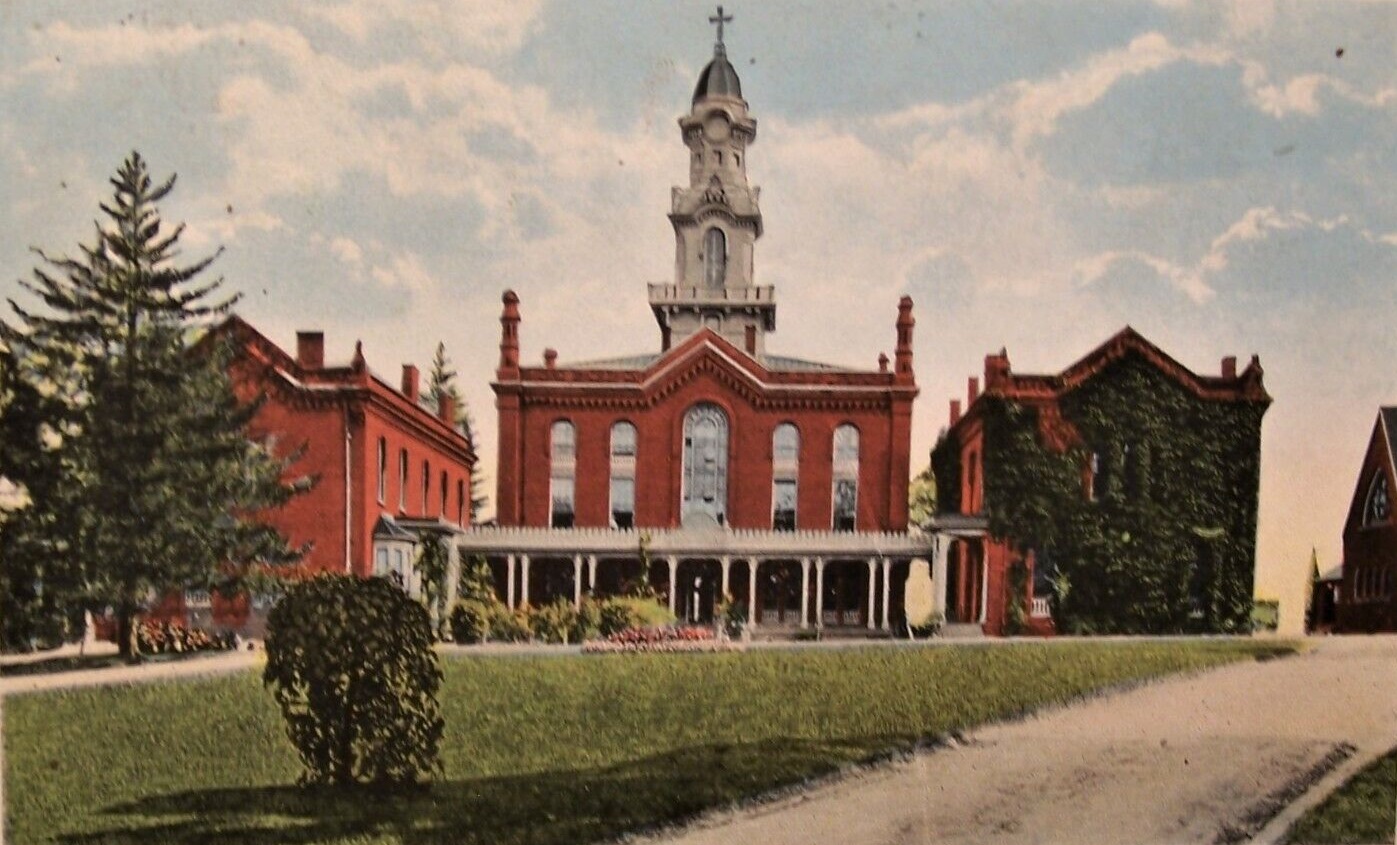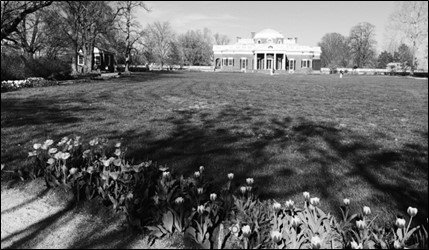During the Advent, or Christmas, season, I enjoy hearing and singing Advent hymns, or Christmas carols, which celebrate the birth of our Lord and Savior, Jesus Christ. I always look forward to this every year. One which I enjoy hearing and singing was written in Northern Virginia, where I am from and where I live.
The Protestant Episcopal Theological Seminary in Virginia, now known as Virginia Theological Seminary, was started in Alexandria, Virginia in 1823. It has been there ever since except for the four-year period 1861 to 1865, when it relocated to Staunton, Virginia, in the Shenandoah Valley, for the duration of the war. During those four years, the occupying Union forces used the seminary buildings for headquarters, hospitals, and other purposes. Phillips Brooks was an Episcopal priest who received his seminary education there before the war. Though he spent the war in the North, he returned to the seminary for a visit in December 1868. The tallest building on the campus is Aspinwall Hall. One night while he was there, he went to the top of the tower of that building and looked down on the city of Alexandria. Brooks had visited Bethlehem three years earlier and when he saw the candlelight in the windows, it made him think of Bethlehem. This was his inspiration for the hymn “O Little Town of Bethlehem,” which he then wrote.
Alexandria, Virginia was the city in the Confederacy which was occupied longest by the Union forces during the War Between the States. The Yankees took it the day after Virginia seceded and occupied it for the entire remainder of the war. Initially, the Yankees established a Union faux state government of Virginia in Wheeling. However, this same faux government declared itself to be the state government of West Virginia in 1863 and applied for statehood for West Virginia. This is unconstitutional because the Constitution says that a state cannot be formed from another state without that state’s permission. Lincoln’s cabinet was split down the middle over this. Some said it was unconstitutional while others said that they should go ahead and do it anyway. When Lincoln weighed in, he sided with the latter and said go ahead and do it. Thus, the state of West Virginia was illegally born. Then the faux government in Wheeling became the faux state government of the Union faux state of West Virginia, Wheeling became its state capitol, and a new Union faux state government of Virginia was formed by the Yankees which they located in Alexandria. When Richmond fell in 1865, the Yankees relocated it from Alexandria to Richmond and it became the Reconstruction state government of Virginia. But sentiment in Alexandria was still Confederate throughout the war, so much so that the Alexandria newspapers referred to the state government in Richmond as the Virginia state government and the faux state government in Alexandria as the assembly residing in Alexandria. Southern sentiment was so strong there that the Yankees could not really do anything about it.
Alexandria was still Southern through the 1950’s but has since become part of Washington suburbia. I can remember that as late as 1969, the light posts in Alexandria were decorated with four flags for Memorial Day: the U.S. flag, the Virginia state flag, the Alexandria city flag, and the Confederate battle flag. There was a law passed in Alexandria in the 1960’s for the Centennial of the War Between the States that all north-south streets had to be named after Confederate generals. That law was recently repealed and now there is an attempt to rename all the streets named after Confederate generals there. If they do, they will have to spend a fortune on new street signs because there are many streets there named after Confederate generals. But politicians regularly spend a lot.
A Confederate monument in Alexandria was recently removed as well. At a hearing relating to its removal, one woman made the comment that it should be removed because we should not have monuments to losers. She was followed by a Vietnam War veteran, who said that he resented that statement because he fought in a war which the United States lost. I wonder if that woman would go up to a Vietnam War veteran and call him a loser or go up to a Texan and tell them that the defenders of the Alamo should not have monuments because they were losers. I can imagine the reaction she would receive.







The lady’s comment that we should not have “monuments to losers”…..wow, she is so unworthy of her inheritance of whatever level of freedom we still possess.
I have news for her, the monuments to the dead are really for the LIVING. Someone who is dead has no idea that you have a gravestone for them. They have moved on from this realm.
The monuments remind us of our past and the sacrifices made by our ancestors. Winning or losing (more of a political check mark) means nothing to the ancestors of those who fought. The sacrifice is the only reality, and it forever stands. The monuments give us heroic examples to emulate, traits to value. Bravery, courage, the willingness to stand up and defend others, with some paying the ultimate price.
The Confederate monuments that dot the state houses across the south gave grieving mothers and wives a common place to connect with a son or husband whose body is buried in a mass grave somewhere. Those monuments were paid for mostly by women who had very little after the war. How dare anyone try to steal that from us! We have a right to remember our dead.
The level of ignorance by some these days does not bode well for the future.
And, I have news for her, the US has not “won” a war in a long time, thanks lately to a dimwitted, corrupt president who gave up the field willingly. The wars we are engaged in these days have no clear mission and in most cases we shouldn’t even be there. But, that does not detract from the fact that it’s our people who are there and putting their own lives at risk.
This disrespectful lady should carefully consider her remarks carefully, especially when around Vietnam veterans.
Honestly, it’s past time that people like her should be confronted loudly and put in their place. I’m glad the Vietnam vet decided to give her an earful.
And I wholeheartedly agree with your assessment, and also that I feel this ‘lady’ should be inclined to move to one of those ‘winning’ states that are today trying to erase southern history and turn the south into the northern states that they are trying to escape.
As Gen. Lee would say, “Those people…” should have some of their own most cherished monuments and so forth removed and turned into scrap metal. I’m sickened by the fact that my family made the sacrifice for the “Great Couse” and people resent me for it.
Don’t let “those people” make you cower in defending your family. From any perspective – moral, political or legal – we had the right to government of our choosing. Their conduct of the War and subsequent events, continued to this day, make evident that we were justified and prudent in our course.
Foregoing my tacit offer not to challenge me, I never leave doubt of the esteem with which I hold my Confederate ancestors. Not anymore.